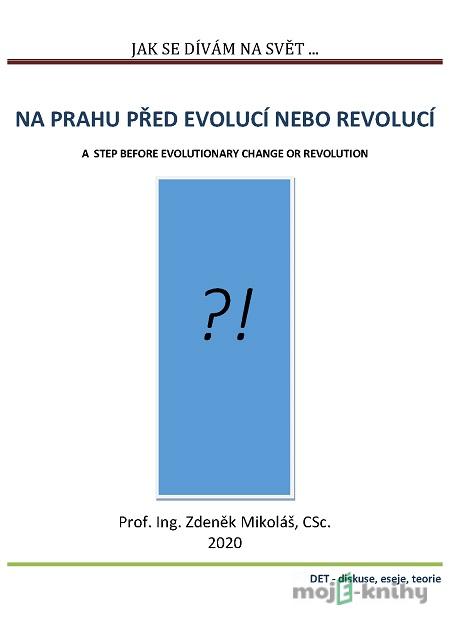Popis
Kniha shrnuje celoživotní poznatky autora, publikované v odborných časopisech a monografiích, v oboru podnikání, podnikové ekonomiky a managementu do stručných esejí a komentářů k soudobým událostem z praktického života. Na konci knihy jsou vloženy kapitoly (v jazyce českém a anglickém) podporující předchozí eseje teoretickými poznatky. Hlavní otázkou, kterou si autor klade, je, zda existuje potenciál dalšího vývoje lidského společenství v pozitivním (harmonickém) nebo negativním (destruktivním) směru. Dospívá k závěru, že společnost stojí před revoluční změnou, a to nejen před technologickou či ekonomickou revolucí, ale též sociální a možná evoluční (biologickou) zásadní změnou. *** Sustainable development of productive social systems, especially family businesses, is a current topic for the Czech Republic and Central Europe. The aim of the paper is to present new theoretical knowledge of the author’s twenty-year research. These findings were achieved in research in the years 2000-2019, especially in research projects SP / 2010167 Contemporary concept of competitive business potentials of industrial enterprises, 402/08 / H051 Optimization of multidisciplinary design and modelling of the production system of virtual companies and other projects in cooperation with Czech and Polish universities. Practical and research activities have recently focused mainly on the synergy of the links between the family business and the owners’ family, their innovative dynamics and competitiveness. The concept of evolutionary business modelling is based on business diagnostics and therapy, a specific approach to scientific research known as empiriology (effectuality). The paper offers a generalization of knowledge to the theory of potential, synergy, time economics of family business and succession in the family. Theoretical findings are verified by empirical research in more than 230 small and medium-sized family companies in the Czech Republic and Poland. The presented results deserve a wide discussion and further verification in practice depending on the cultural differences of the manifestations of globalization in different parts of the world (especially in Central Europe) under the influence of the Industrial Revolution 4: 0 (resp. 5.0).





Recenzie
Nikto zatiaľ nepridal hodnotenie.